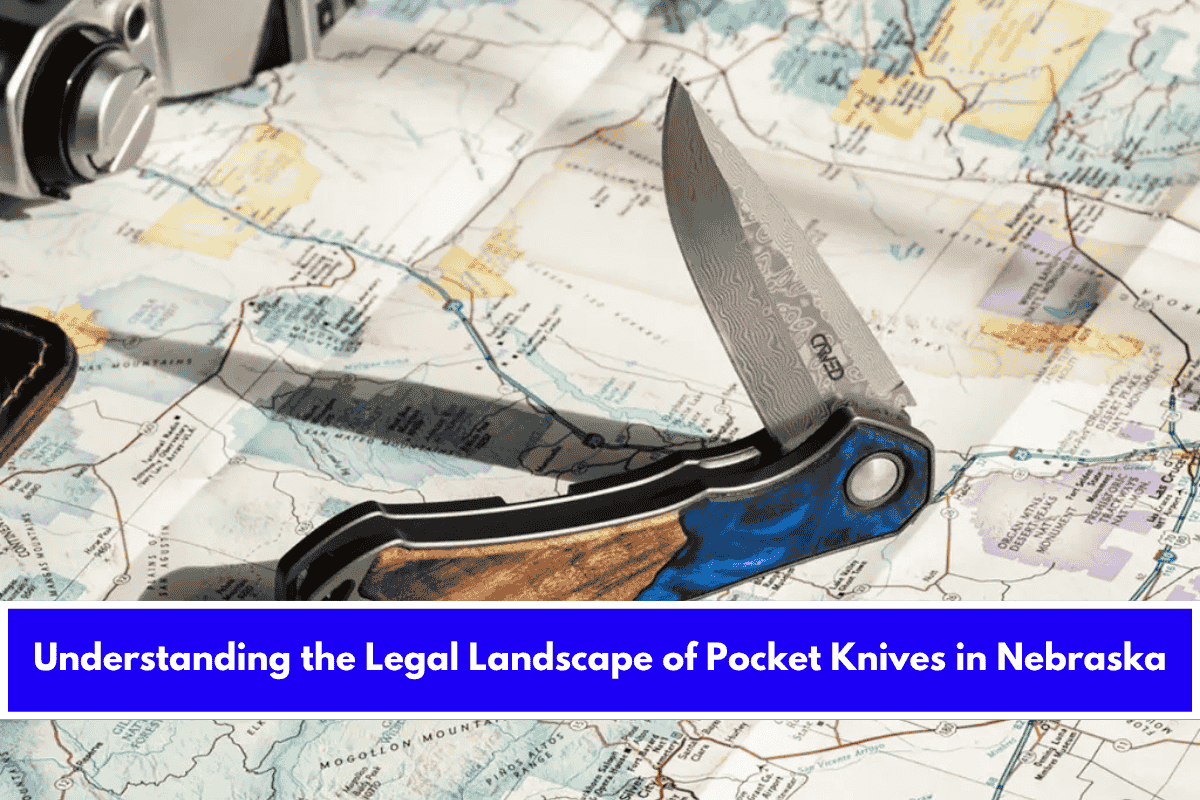Nebraska’s knife laws are relatively straightforward but have critical distinctions, especially regarding concealed carry and blade length. Here’s what you need to know:
Ownership and Types of Knives
- Legal to Own: Nebraska allows the ownership and open carry of almost any type of knife, including folding knives, fixed blades, daggers, stilettos, and automatic knives (except ballistic knives, which are illegal to possess, sell, or use).
- No Restrictions on Sale or Transfer: There are no statewide restrictions on buying, selling, or transferring knives, except for ballistic knives.
Open Carry
- Permitted: You may openly carry any legal knife in Nebraska, regardless of blade length, except in certain restricted locations (like schools or government buildings).
- Local Ordinances: Nebraska does not have statewide preemption, so cities like Omaha and Lincoln can—and do—enact stricter rules.
Concealed Carry
- Blade Length Limit: Concealed carry of any knife with a blade longer than 3.5 inches is unlawful statewide.
- Definition of Concealment: A knife is considered concealed if it is hidden from “ordinary observation.” Pocket clip carry may still be considered concealed under Nebraska law.
- What’s Allowed: Only folding pocket knives with blades 3.5 inches or shorter may be carried concealed legally.
- Penalties: Carrying a knife concealed in violation of these rules is a Class I misdemeanor for a first offense (up to 1 year in jail and/or a $1,000 fine), and a Class IV felony for subsequent offenses.
Restricted Locations
- Schools: Nebraska law prohibits students from possessing knives on school property. School officials have broad authority to discipline students for weapons possession.
- Government Buildings & Federal Property: Additional restrictions may apply—federal buildings and courthouses typically prohibit pocket knives entirely.
Special Considerations
- No Exception for Law Enforcement or Military: Nebraska law does not provide exceptions for law enforcement or military personnel regarding concealed carry of knives.
- Affirmative Defense: Concealed carry may be defensible if the knife is carried at your place of business or employment and you have a reasonable expectation of needing it for self-defense, but this is an affirmative defense—meaning you could be arrested and must prove your case in court.
Local Ordinances
- No Statewide Preemption: Municipalities can enact their own, stricter knife laws. For example, Omaha and Lincoln have additional regulations, including restrictions on certain types of knives like switchblades.
- Always Check Local Laws: Before carrying a knife in a Nebraska city, check local ordinances to ensure compliance.
Summary Table: Nebraska Pocket Knife Laws
| Category | Rule |
|---|---|
| Ownership | Most knives legal to own and open carry; ballistic knives prohibited |
| Concealed Carry | Legal only for folding knives with blades 3.5 inches or shorter |
| Open Carry | Legal for most knives, any blade length |
| Schools | Knives prohibited on school property |
| Local Ordinances | No preemption; cities like Omaha and Lincoln may have stricter rules |
| Penalties | Class I misdemeanor (first offense); Class IV felony (repeat offenses) |
Key Takeaways
- You can own and openly carry most knives in Nebraska.
- Concealed carry is only legal for folding pocket knives with blades 3.5 inches or less.
- Local laws may be stricter—always check city ordinances.
- Never bring knives onto school property or into government buildings.
- Violating concealed carry laws can result in serious penalties.
Understanding these distinctions is crucial for staying on the right side of Nebraska’s knife laws.
Sources:
- https://www.akti.org/state-knife-laws/nebraska/
- https://ravencresttactical.com/nebraska-knife-laws/
- https://nebraskalegislature.gov/laws/statutes.php?statute=28-1201
- https://www.carved.com/blogs/life-at-carved/pocket-knife-rules-laws-by-state











Leave a Reply